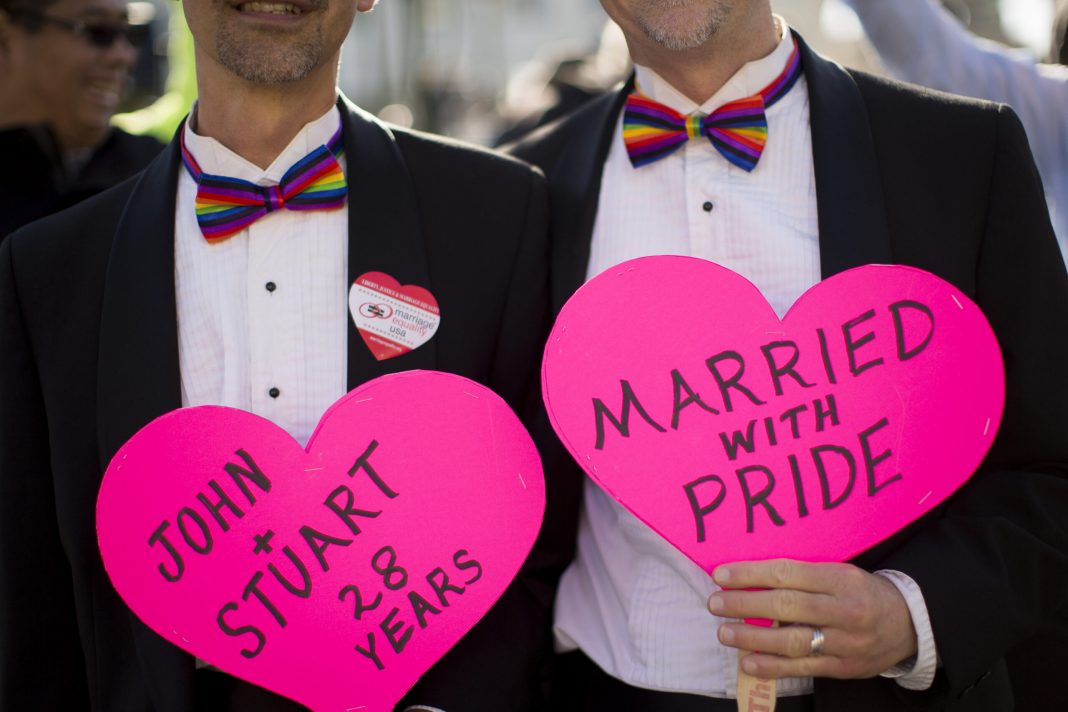A Legal Right Faces Renewed Threats
A decade on from the Supreme Court’s landmark Obergefell v. Hodges decision, same-sex marriage in the United States—once seemingly securely enshrined—now faces a surge of legal and political challenges, prompting concerns over its durability and the uneven patchwork of rights it could leave behind.
1. An Organized Conservative Push
Across numerous state capitols, Republican lawmakers—including those in Idaho, Michigan, Missouri, Montana, North Dakota, Oklahoma, South Dakota, Tennessee, and Texas—have advanced resolutions urging the U.S. Supreme Court to reconsider or reverse Obergefell. These measures carry no binding legal force, but their symbolic weight is palpable, signaling active efforts to delegitimize marriage equality. In several states, proposals for “covenant marriage”—religiously based unions limited to heterosexual couples—have also been introduced.
2. Southern Baptist Convention’s Resolution
The Southern Baptist Convention, representing more than 13 million congregants, has escalated its stance. At its June 2025 convention, delegates passed a non-binding resolution calling on both Congress and state legislators to overturn Obergefell, describing it as incompatible with their interpretation of “God’s design” for marriage. Though symbolic, this resolution highlights a growing institutional push against marriage equality from entrenched conservative religious voices.
3. Kim Davis’s Supreme Court Petition
In a high-profile move, Kim Davis—the former Kentucky county clerk jailed in 2015 for refusing to issue same-sex marriage licenses—has petitioned the Supreme Court to overturn Obergefell. Her legal team contends that the original ruling “conflicts with religious liberty” and argues the Court’s current conservative majority has signaled a willingness to revisit landmark precedents.
4. Public Opinion: Support Remains Strong, But Drops Among Republicans
Despite these legal maneuvers, public sentiment largely favors marriage equality. A May 2025 Gallup poll reported 68% of Americans support same-sex marriage—88% of Democrats and 76% of independents, but only 41% of Republicans. The partisan divide is widening: Republican backing has fallen sharply from a high of 55% in 2022–23.
5. The Federal Safety Net: Respect for Marriage Act
In response to the threat, Congress passed the Respect for Marriage Act in December 2022. It requires nationwide recognition of legally performed same-sex marriages, but does not guarantee states must issue same-sex marriage licenses—the authority to do so still lies with the Supreme Court’s interpretation of the Constitution.
6. Legal and Practical Implications
If Obergefell were overturned:
- Laws and bans that remain “dormant” in 31 states would take effect, potentially halting new same-sex marriages.
- Couples legally married in one state could still move freely to another, thanks to the Respect for Marriage Act—but their ability to wed locally would vary by jurisdiction.
- Existing marriages would remain legally valid under federal protections, but couples could face renewed uncertainty around spousal benefits, child custody, and other legal rights.
7. The Real-World Stakes: Anxiety and Preparation
As legal uncertainty grows, queer couples are taking proactive steps to protect themselves. Attorneys report a marked uptick in LGBTQ+ individuals drafting wills, power-of-attorney forms, and healthcare directives—precautions once deemed less urgent post-Obergefell.
8. Courts and Constitutional Prospects
While Obergefell was narrowly decided 5–4 in 2015, recent signals from Supreme Court conservatives, including Justice Clarence Thomas, hint at a willingness to revisit precedent. However, many legal experts caution that courts are reluctant to upend established constitutional rights. A narrow, religious-liberty-centered case—like Kim Davis’s—may gain little traction unless the Court opts for a broad reconsideration.
Final Take
Same-sex marriage remains a deeply embedded civil right supported by the majority of Americans. But what once seemed irreversible is now under deliberate and multifaceted assault—legislative, institutional, judicial. At this critical juncture, the future of marriage equality depends not just on legal battles, but on democratic resilience, civic advocacy, and constitutional safeguards.


